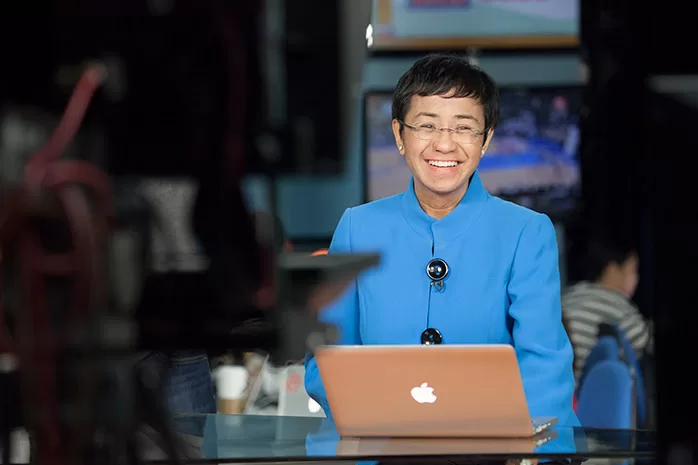Nobel Peace Prize winner Maria Ressa, who runs the independent news site Rappler in the Philippines and is a former Index Awards judge, has slammed the annual Reuters Institute for the Study of Journalism report on digital news for putting independent journalists like her at risk.
The Guardian has revealed that Ressa resigned from the board of the prestigious Oxford-based institution last year after it listed Rappler as the “least-trusted” news source in the Philippines. She had kept her resignation secret but has now gone public after RISJ failed to change its methodology for this year’s report.
She claimed the regime in the Philippines “weaponised” the Reuters report to attack the work of Rappler. In 2020, Ressa was found guilty of “cyberlibel” in a case relating to a Rappler story alleging links between a businessman and a top judge, even though its publication dated from before the legislation under which she was charged. The appeal is now before the Supreme Court. The authorities have also brought a number of other cyberlibel and alleged tax evasion cases against Ressa and she faces years in jail if convicted.
There could not be a more serious charge against RISJ than putting the brave journalists of Rappler at risk and Ressa’s concerns should be shared by every organisation working in the area of free expression. The digital survey is based on an extensive YouGov survey of attitudes amongst randomised participants in selected countries around the world. It has been funded to the tune of nearly £5m by the global information giant Google over the past three years. Ressa said the research failed to take full account of government disinformation campaigns and the influence of the tech platforms.
Ressa took to Twitter after RISJ issued the following apology: “We are sorry our work has been abused and Maria Ressa thinks our methodology risks undermining media in the Global South.”
In response, the author of How to Stand Up to a Dictator said: “It’s not enough to be sorry when your work is used to attack journalists in ‘inconvenient’ countries. Journalism research has no integrity if it endangers journalists at risk.”
Ressa revealed that she had been involved in four years of behind-the-scenes feedback to the Reuters Institute. She added; “With no substantive changes and no acknowledgement of its harms, you have to ask – what is the purpose of this research?”
She quoted from an email she sent on 4 July 2022 that stated: “If you don’t acknowledge your mistake you will repeat it – and other more vulnerable news groups may not weather it as well as we can.” She went on to explain that the Philippines’ government and “propaganda machine” was using the Oxford University brand against Rappler. “When journalists are under attack, it isn’t business as usual for academics studying journalism. This isn’t just bad actors manipulating the study; the flaw is in the study itself.”
Branko Brkic, editor-in-chief of South Africa’s independent Daily Maverick, said he shared Ressa’s concerns about the Reuters Institute study and particularly its failure to distinguish genuine journalism from misinformation in his country.
It is difficult to overstate the significance of Ressa’s intervention. Emily Bell, director of the Tow Center for Digital Journalism at Columbia, told the Guardian that the RISJ methodology was open to question: “If you only take an audience view of the threats to journalism, specifically in markets where you do not have strong protections for a free press, you are at high risk of ending up with a distorted picture.”
Rasmus Kleis Nielsen, the director of the RISJ, said he deplores the abuse of Ressa and the way the research has been misrepresented. But the real question is what he is going to do about it. Ressa has described the survey as “giving a loaded gun to autocratic regimes”. Her words are a devastating rebuke to Nielsen and RISJ. But they should also give pause for thought to all western actors in the field of human rights and press freedom, Index on Censorship included. Those working to support dissident writers and independent journalists around the world must first listen to those working on the ground.






